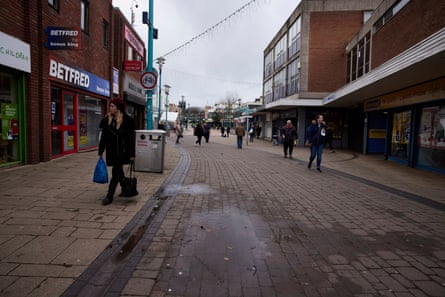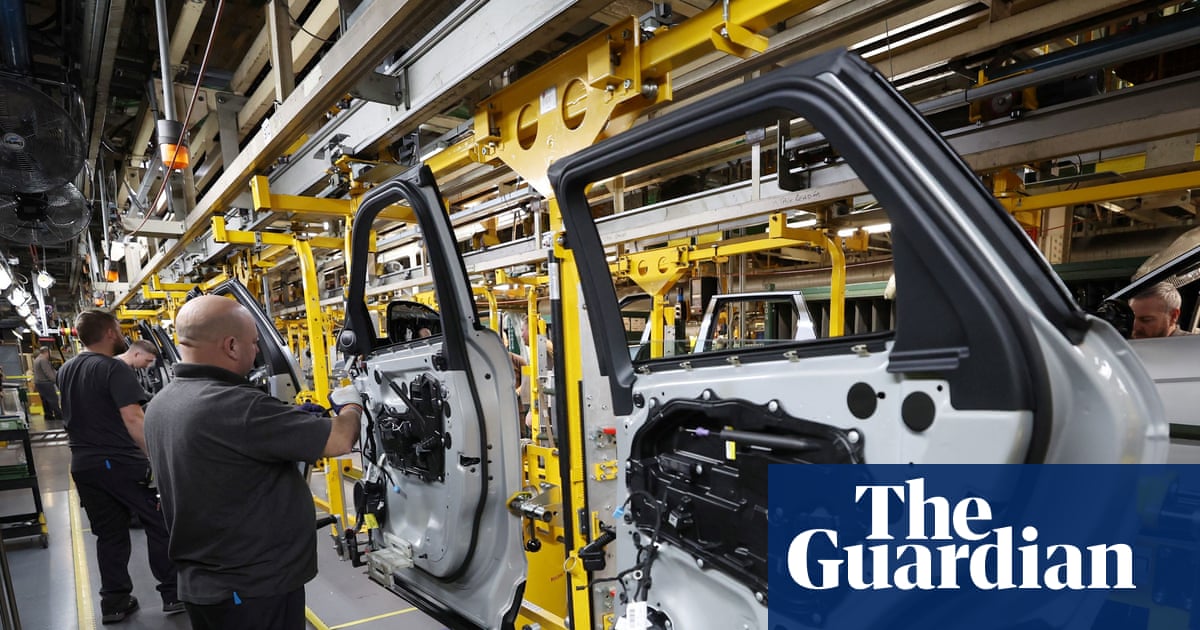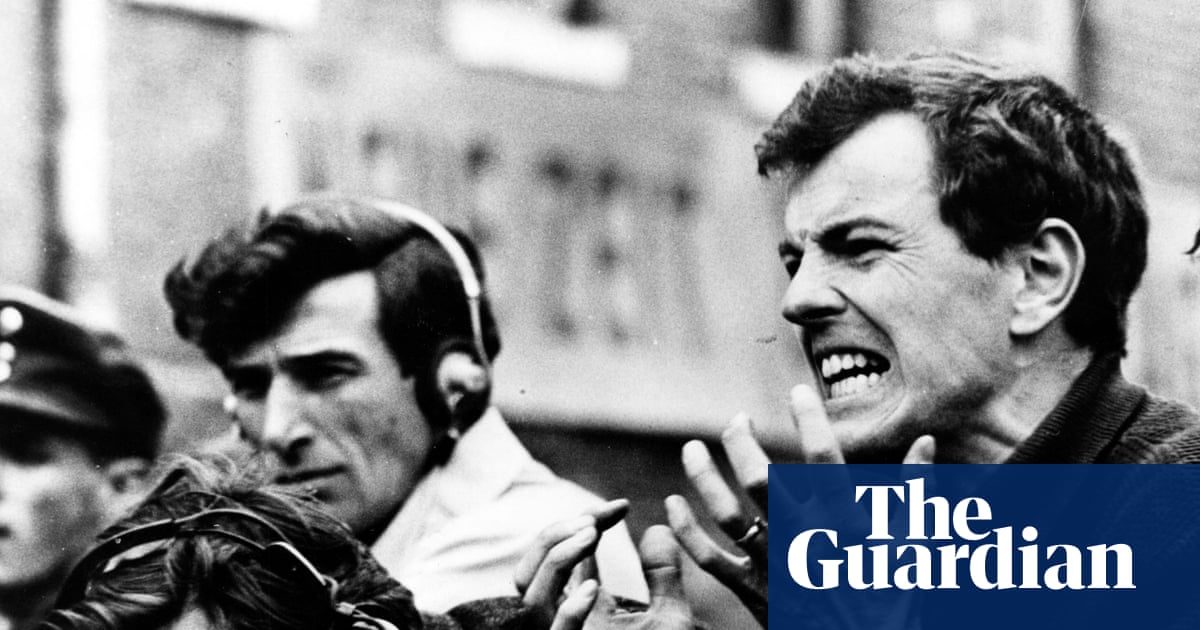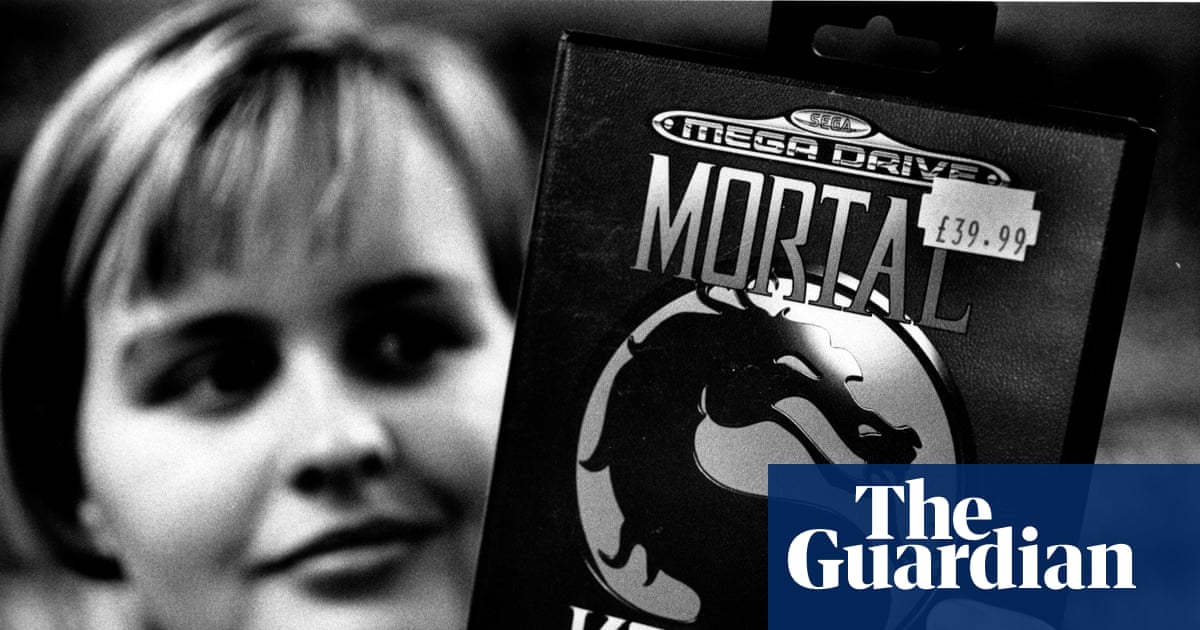At the weekend, I took the well-worn journey from London to Knowsley in Merseyside. I’ve made this trip so many times that I can execute it with military precision, arriving just in time before the train doors close, even with a toddler in tow this time around. My uncle picked us up from the station and as we turned on to the motorway, I saw St George’s flags hanging over us from the sides of bridges. Union jacks circled the roundabout just before we turned off to go to my auntie’s house. Knowsley is Labour’s fourth-safest seat in the UK, but it felt like a newly minted Reform constituency.
It was a Friday evening, so we opened a bottle of wine and put pizzas in the oven. I was updated on various family milestones – a house sale had gone through, a baby bump was starting to show, the poor dog was on its last legs. My daughter entertained everyone with an energetic rendition of Sleeping Bunnies. Behind her, the BBC News at Six played images of migrants huddled on inflatable boats sailing across the Channel.
The next day, we drove past large Amazon, Evri and DHL warehouses to a retail park to shop for kids’ clothes. We had lunch in the M&S cafe and watched as pensioners struggled to order coffee and tea from the newly installed touchscreens. Someone nearby scrolled through TikTok and stated that the far-right protest in London had 3 million attenders. (Police estimates have put the figure between 110,000 and 150,000.)
For the rest of the weekend, out and about, I asked questions. What did people make of the news? What did they think about what the protesters had to say? Would they vote Reform UK? I wasn’t doing thorough research, and my results wouldn’t stand up in any peer-reviewed study, but I was trying to get a snapshot of a place before it changed beyond my recognition.
I heard two arguments again and again. People were opposed to the boats on a principle of “fairness” that was limited to national boundaries. Some said that they had worked and paid taxes all their lives, and it was therefore unfair that someone who had never worked or paid taxes in Britain should have accommodation and financial support and be able to access the NHS. They felt the UK should get its own house in order before helping others.
The second argument was new: the people coming in small boats are young men who pose a threat to British women. Knowsley has never been immune to the everyday racism experienced across the UK – or even its violent outbursts, as with the murder of Anthony Walker in 2005 – but never before have racist talking points been repeated so persistently. The trope about women was straight out of the far-right playbook, post-Rochdale, and has been circulating in Knowsley for the past two years. Back in February 2023, a violent riot broke out in Knowsley outside a hotel housing migrants. A video had been widely shared on social media allegedly showing a migrant staying at the accommodation asking for a 15-year-old girl’s phone number. At the time Tommy Robinson, whose real name is Stephen Yaxley-Lennon, posted on Telegram: “A clear message sent to the police, to the UK government and to the hotels who house illegal economic migrants accused or suspected of grooming schoolchildren.” Momentum built further when, in July and August 2024, riots broke out not far away in Southport after the murder of three young girls. Rumours had spread in the hours after the incident that the attacker was a Muslim refugee. I was in Merseyside at the time and remember driving with a friend as a false image of the attacker landed in their “lads” WhatsApp group.

People in Knowsley are right to want more support. The borough is the second most income-deprived area in England. Over a quarter of working-age adults are economically inactive. It has the lowest GCSE pass rate in the country. Men and women have a healthy life expectancy of around 54 years old. Town centres remain more or less empty following the building of “megamarkets”. As with the rest of the country, people check their bank balances with a sense of dread as prices continue to rise. I sat up that night looking at polling for Knowsley: the turquoise Reform bar stretched far beyond Labour’s red one.
It’s no coincidence that migrants were housed in this disadvantaged area. Successive governments have sought the cheapest areas to house asylum seekers. Lucrative contracts have been handed out to private providers, such as Serco, to manage such accommodation and profits have been paid out to shareholders. All the while, local councils have been struggling to provide the most basic of services for over a decade thanks to central government cuts. I asked people what they thought of Keir Starmer. “What has he done? He’s gone after pensioners.” And Farage? “Well, he’s a bit different.” In the absence of any meaningful change or any narrative to grasp on to, the right and Reform UK have shaped the story. One all too easy to believe.
I also visited family in the better off – and more diverse – seat of Liverpool Wavertree. Waiting in line for a coffee, I had a chat, and heard that migrants are not to blame for austerity, privatisation and the extraction of money from our local communities into far-off bank balances. Violence against women and girls is a male, not a migrant problem. There is hope if people see a change in their circumstances. If Labour fail to achieve this, there is a cautionary tale 20 minutes down the road. Earlier this year, in the Runcorn byelection, Reform won the seat from Labour by just six votes.
Kirsty Major is a deputy Opinion editor for the Guardian

.png) 1 month ago
42
1 month ago
42

















































